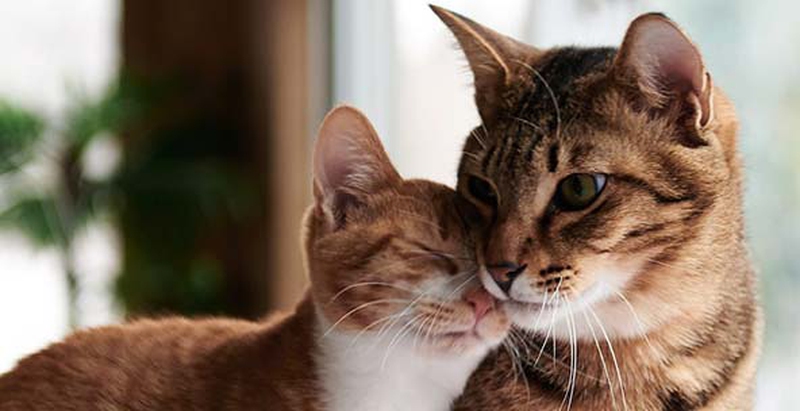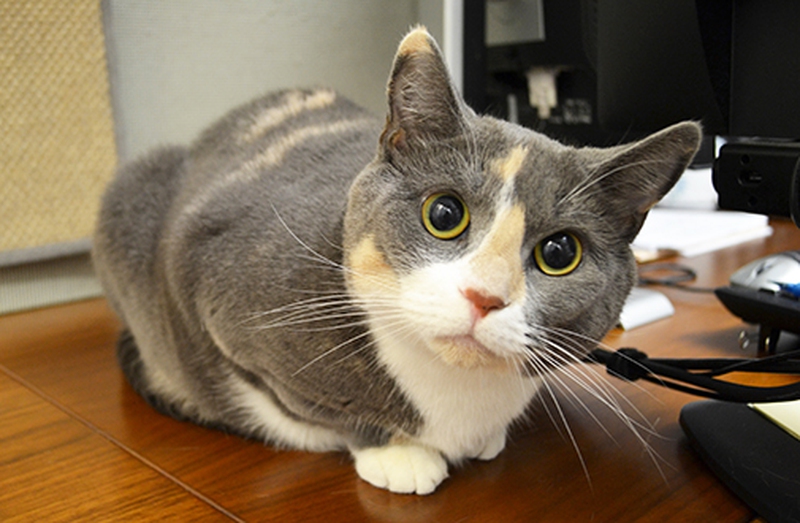Many humans suffer from allergies, but they don’t realize that cats can get allergies too. Allergies are main causes of skin diseases in cats. The term allergy means "altered working". The immune system is designed to keep infectious pathogens, such as bacteria, viruses, and fungi, out of the body, and to destroy any pathogens that attack the body. However, in an allergic animal, the immune system overreacts to harmless substances. Here you can find several solutions when you don't know and want to ask, "what can I give my cat for allergies?"

Non-medical Methods For Cat Allergy
Keep Away From Allergens
Allergens | Avoidance suggestions |
House Dust |
|
House Dust Mites |
|
Molds |
|
Pollen |
|
Fleas |
|
Food Allergies |
|
Try Some Natural Remedies
Natural remedies may help when you are wondering, "what can I give my cat for allergies?"
Fatty Acids: Omega 3 fatty acids work by decreasing the overreaction of your cat’s immune system. While omega 3 fatty acids can be effective for some cats, it takes about 3 to 6 weeks to take full effect—so you’ll need to be patient. Additionally, in order to work properly, your cat will need to consume same amount of omega 3 and omega 6 fatty acids in their diet.
Yucca: Yucca is a natural anti-inflammatory medication that can assist the immune system to work properly. Yucca should be given to your cat daily, and may be applied either directly to their skin or mixed into their food.
Topical Therapy: Topical therapy can also be helpful for cat with allergies. Some options for topical therapies include colloidal oatmeal , hypoallergic or hydrocortisone shampoos. Hydrocortisone creams or salves can also help, but these medications should not be used on areas that cats are able to lick.
Medical Treatment for Cat Allergy
Antihistamines
Antihistamines are very common medications that used for treating allergies in both pets and humans. These medications are effective in 70% of cats, and even more effective when the cat be treated with fatty acids as well and follow avoidance suggestions mentioned above. Antihistamines that are commonly used in cats include diphenhydramine, hydroxyzine, clemastine, and chlorpheniramine. Antihistamines should not be given to your cat unless recommended by your veterinari. Some side effects of antihistamines include sedation, hyperactivity, dry mouth, constipation, and decreased appetite.
Steroids
Steroids are an extremely effective medication for cats with severe allergies and itching. However, these medications do have some severe short-term or long-term side effects, so they should be used with caution and at the lowest possible dose. Steroids are usually reserved for use when other treatments don't work. Steroids may be given either orally or as an injection. The most common side effects of steroids in cats include increased hunger and thirst, increased urination and diarrhea.
Immunosuppresants
Immunosuppresants, such as cyclosporine, may be used as an alternative to steroids in cats. They are usually quite effective, but they are expensive and have side effects including loss of appetite and rarely bone marrow suppression.
Know When Your Cat Is Suffering from Allergy
Symptoms of Allergy
Over grooming: This is your cat’s way of scratching itching skin. You may notice areas with missing fur that has been licked off, especially on the cat’s belly, hindquarters, and legs.
Miliary dermatitis: These are small bumps or scabs that can appear on the cat’s skin, similar to an allergic rash.
Rubbing: Your cat may rub itchy areas on its face that it is unable to lick, especially the ears and area above the eyes.
Increased ear wax: A cat with allergies may produce more ear wax, due to inflammation in the body.
Throwing up: Allergic cat may have nausea and vomiting related to inflammation in the small intestine.
Cracked paws: The paw pads of a cat with allergies may appear dry or cracked.
Eosinophilic granuloma complex: This symptom appears as swollen ulcers or large plaques, and is related to hypersensitivity caused by allergies.
Scooting: In some cases, your cat with allergies may have thickened or inflamed anal sacs. They may “scoot” across the floor in an attempt to scratch these areas.
Coughing: In some cases, coughing may be caused by allergies.
Diagnosis Methods
Allergies in cats are usually diagnosed by skin allergy test, because blood allergy tests are not considered as reliable. If your cat has food allergies, diagnosis may include feeding them a special diet for 12 weeks. diagnosis would be a important thing to do if you are not sure what is the trigger and what type of allergy you cat has. Then it is the second step to ask, "what can I give my cat for allergies?"




View All Comments /Add Comment